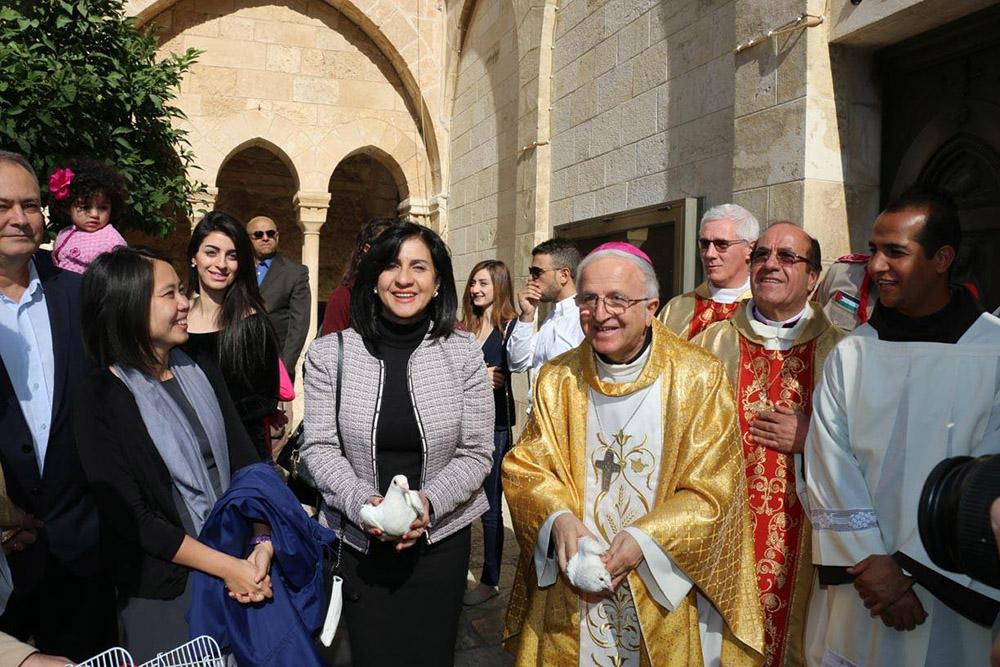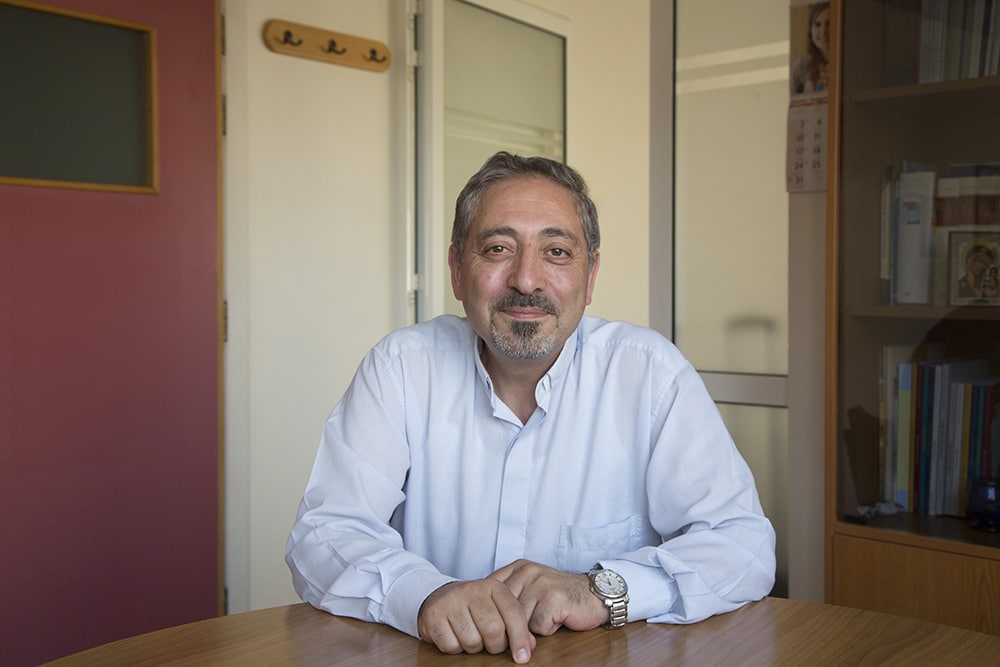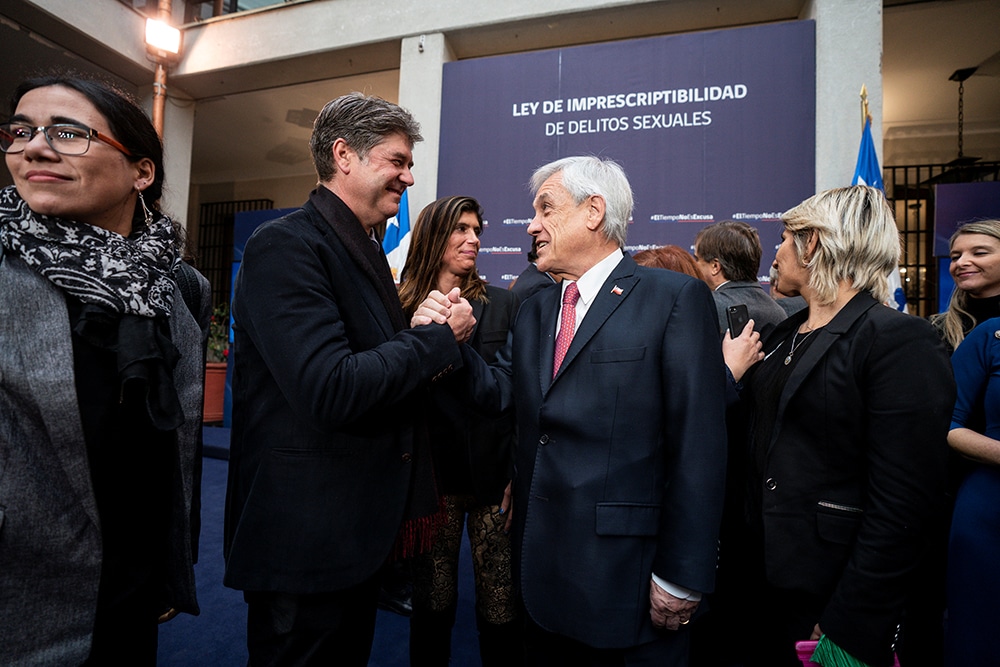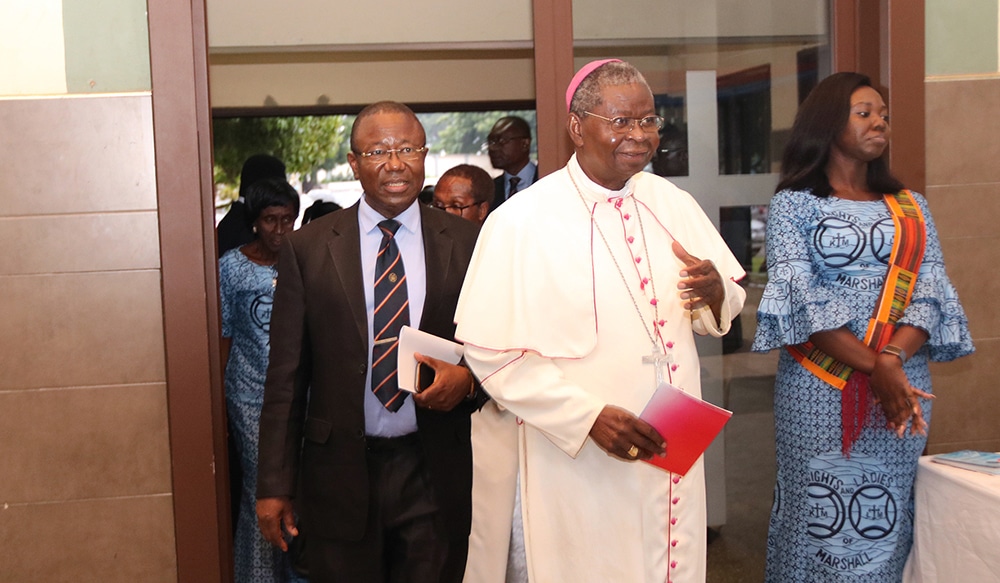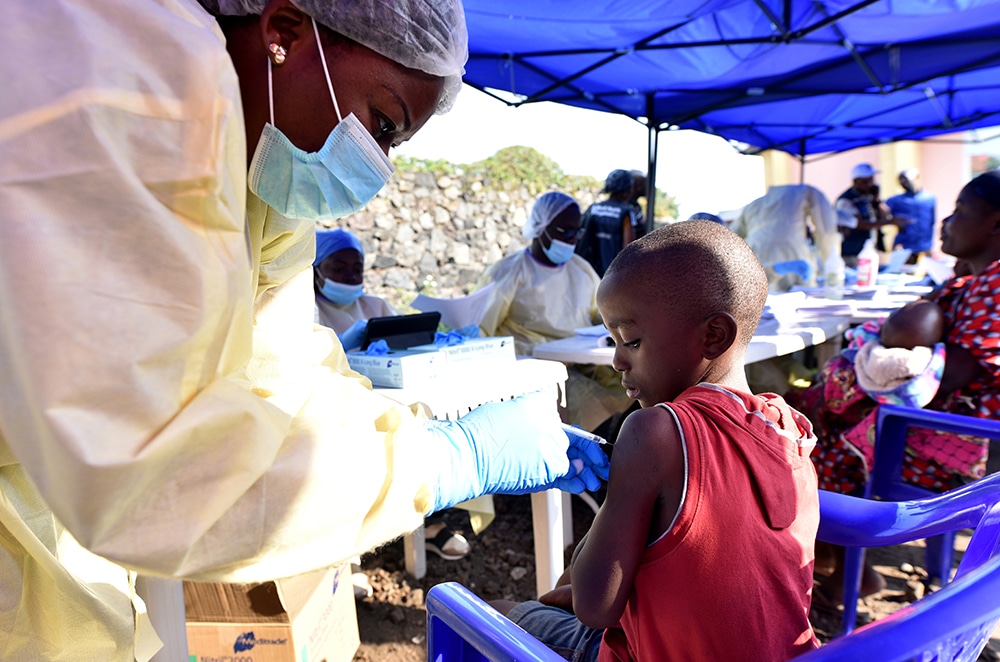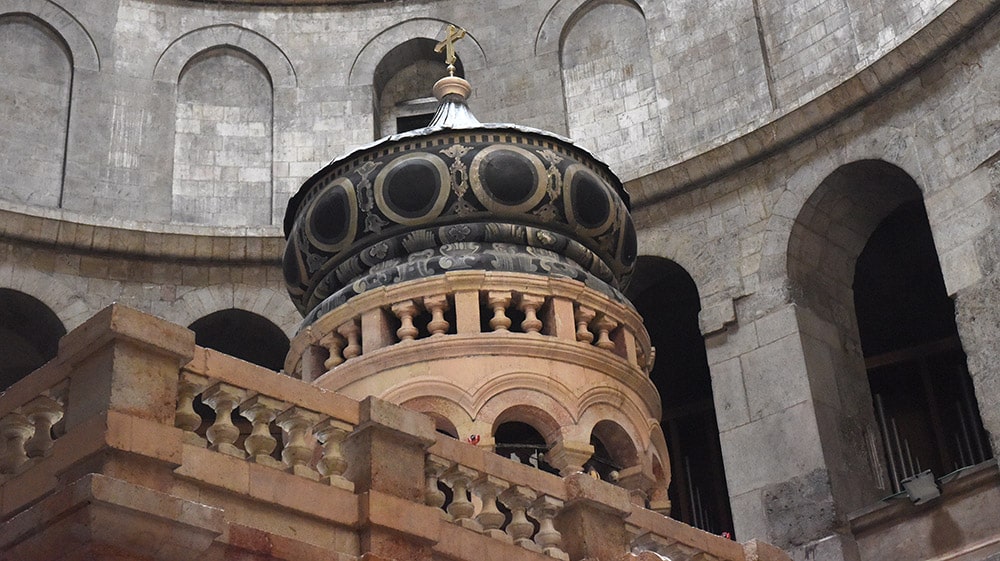The truth is that a peaceful coexistence can be built between Christians and Muslims in the Middle East, as proven by the case in Jordan. But the culture of dialogue must be further strengthened against the spreading of radical ideologies through newspapers, books, social media and websites.
These are some of the conclusions reached by a prestigious international conference on “Media and their role in defending the truth,” which was held June 18-20 in Amman, the capital of Jordan. The conference reflected on dialogue between religions and people in the Middle East, and it was promoted by the Council of Catholic Patriarchs of the East and the Catholic Center for Studies and Media in Jordan.
In this interview with Bishop William H. Shomali, auxiliary bishop of the Latin Patriarchate of Jerusalem since 2010 and patriarchal vicar for Jordan since 2017, he recalls the famous “Document on Human Fraternity” signed in Abu Dhabi on Feb. 4, 2019, by Pope Francis and the Egyptian Grand Imam of Al-Azhar University Al Tayeb, the highest authority of the Sunni-Muslim world community. Bishop Shomali also enlightens readers about the situation of the Jordanian Christian minority, praising the role of the Hashemite ruling dynasty in promoting peace and tolerance. Yet, he advises, a real improvement will come from putting more attention on education.
Our Sunday Visitor: Bishop Shomali, can you explain the importance of the conference and its theme?
Bishop William H. Shomali: The title is precisely “Media and their role in defending the truth.” In my opinion, however, it is a somewhat ambiguous title, because in people’s minds there is not a single truth. Every religion has its truth, every person, his own truth, values, different from those of others. I would have preferred “Media and their role in defending values,” or “Defending the culture of peace, the culture of dialogue, the culture of tolerance.”
OSV: Why?
Bishop Shomali: Since despite everything, there is a culture of peace, tolerance, dialogue, which was given voice by the “Document on Human Fraternity for World Peace and Living Together,” signed in Abu Dhabi by Pope Francis and the Grand Imam of Al Azhar University Ahmad Al Tayeb, in order to reaffirm these values and ask the media to be their spokesman.
OSV: You are bishop in a country, Jordan, and in a region, the Middle East, where it is not obvious to talk about dialogue and peaceful coexistence between different religions.
Bishop Shomali: In Jordan, we Christians are 2% of the entire population, very few! And Catholics even less, about 1%. Nevertheless, I must say that we have the freedom recognized by the authorities to practice our faith, freedom of worship, freedom to run schools, where our children receive a Christian education. We can have our churches, hold celebrations even outdoors, such as street processions, celebrate our holidays, such as Christmas and Easter, and the government usually sends its representative to send us good wishes.
OSV: Since a majority of the Jordanian people, as in almost all the Middle East, are Muslims, what about the religious minorities’ civil rights?
Bishop Shomali: As Christians, we feel we are full members of this nation. I can add that as Christians we have a good representation in the government, with three Christian ministers out of 27, and in parliament, with 9 out of 130 members. Therefore, we are represented in political institutions with even bigger numbers than the 2% mentioned before. If we consider the world of economics and finance, there are more than 2% of Christians involved in those fields. Their activities have a considerable weight.
OSV: And in education?
Bishop Shomali: The importance of our schools and the quality of teaching are recognized even by many Jordanian families who, although not Christian, try to have access to these schools, to entrust us with their children. To summarize, the Christian minority in Jordan has an economic and cultural impact that goes far beyond its numerical size.
This does not mean that there are no difficulties, because radical ideologies spread through the media, books, magazines, social media, websites, and this justifies this conference: how to use media and direct them toward a culture of respect between different religions.
OSV: Is there a risk, as in other countries, that religious extremism will lead to violence?
Bishop Shomali: The situation here is different from Syria, Iraq or Egypt. The government pays great attention, especially during the most solemn religious holidays, in protecting the churches to prevent even the slightest episode of violence. We have never really suffered what Christians have suffered in other countries, like Sri Lanka lately. In Jordan we have always had a daily-life dialogue between Christians and Muslims.
OSV: Queen Rania has a solid reputation as a woman who encourages peace.
Bishop Shomali: All the royal Hashemite family cultivates a strong tradition of respect for Christians. Queen Rania, once she joined the royal family, continues the tradition.
OSV: Could the other Middle Eastern countries take as an example the peaceful coexistence and tolerance that exists in Jordan? And how?
Bishop Shomali: I think so. Jordan has something to pass on to other Arab countries. We are not perfect, but we feel much more protected here from terrorism than elsewhere. But it is also true that we still have to make new efforts, on other levels, to improve the climate of dialogue and tolerance.
OSV: What efforts are you referring to, exactly?
Bishop Shomali: For example, as was said at the conference, it is necessary to deal with school texts. What do kids learn at school, attending religious education lessons? What is written in the history books on other religions, other peoples? And the teacher, in class, what instruction does he transmit to his students? Does he teach respect or fanaticism? Education needs more attention. And then there will really be an improvement.
OSV: Do you think the document signed in Abu Dhabi mentioned above is a useful tool? What are the challenges to putting it into practice?
Bishop Shomali: In my opinion, it is a document of great value, which affirms the principles of dialogue and education to advance dialogue, peace and tolerance. But to be honest, it has not yet been taken into consideration at a broad level. At first, we read it, we discussed it in some circumstances … but, for example, it was mentioned only a few times at this conference, speaking about media and dialogue, media and truth. Also the Abu Dhabi document addresses these issues! So, I believe that we Christians should talk about it more, and Muslims, likewise. … It deserves to be much better known.
| About ‘A Document on Human Fraternity’ |
|---|
|
When Pope Francis and Ahmed el-Tayeb, Grand Imam of al-Azhar, signed “A Document on Human Fraternity for World Peace and Living Together” on Feb. 4, it invited “all persons who have faith in God and faith in human fraternity to unite and work together so that it may serve as a guide for future generations to advance a culture of mutual respect in the awareness of the great divine grace that makes all human beings brothers and sisters.” The document calls for “leaders of the world as well as the architects of international policy and world economy, to work strenuously to spread the culture of tolerance and of living together in peace; to intervene at the earliest opportunity to stop the shedding of innocent blood and bring an end to wars, conflicts, environmental decay and the moral and cultural decline that the world is presently experiencing.” |

